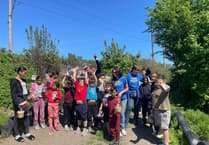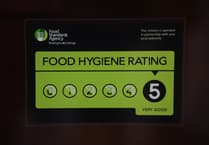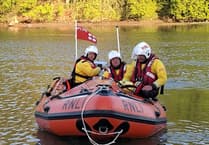A Field Studies Council beach clean at Slapton collected a whopping 22.54kg of rubbish on Saturday September 16.
The clean, which was led by Em Kendall, took place as part of the Marine Conservation Society Great British Beach Clean. This is an event that happens every year between September 15th and September 24th.
The clean took place between 9.30am – 12.30pm on Slapton Sands, which is a beach the Field Studies Council often utilise for fieldwork with groups.
The event attracted 30 volunteers, who collected 22.54kg of rubbish collected in total.
The community got on board too, with participants being rewarded for their hard work with a free whippy ice cream, tea, or coffee from the Start Bay Inn.
The winning group of collectors at the clean was a team from Fat Face in Plymouth. They topped the leaderboard with 6.21kg collected between them.
Em Kendall, Senior Tutor of the Field Council, said of the event: “Slapton Sands is often perceived as, and has been awarded on several occasions for, being a clean beach. But it’s when you take a closer look, for example when taking part in a litter pick, that you begin to see the vast quantity of waste left or washed up on the beach. Those joining our beach clean yesterday managed to collect a whopping 22.54kg of litter in a couple of hours, with rubbish ranging from fishing line and hooks, to metal bbq grills and even a soggy pair of pants!”
The cleaning team met at the memorial car park as Slapton where volunteers were invited to challenge themselves to collect as much rubbish as they could, and weigh the rubbish they collected to see if they could get their name on the beach clean leader board.
A spokesperson for the clean said: “Virtually all plastic ever made still exists, and it is believed it will take between 500 and 1,000 years for it to degrade. But, even when it starts to break down, it does so into tiny pieces which we are starting to find in a growing number of places, many seabirds, cetaceans, turtles, and a growing number of fish have been found with plastic inside their bodies and now also inside the food we eat and bottled water too.”
Field Studies Council is an environmental education charity. Founded in 1943, we are best known for providing residential field trips for those studying biology and geography.
Their mission is to create outstanding opportunities for everyone to learn about nature, through fieldwork and outdoor learning experiences for schools, colleges and universities; guides and courses.





Comments
This article has no comments yet. Be the first to leave a comment.